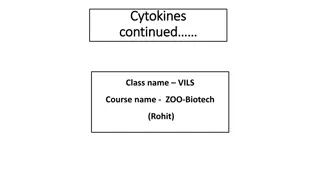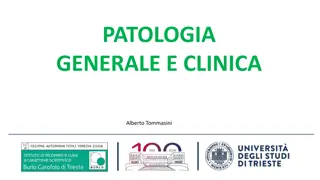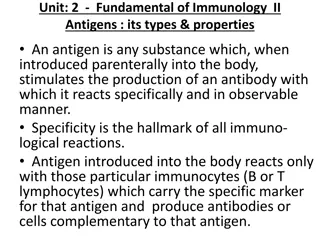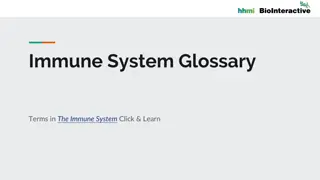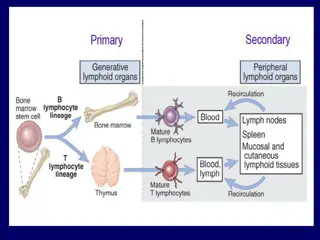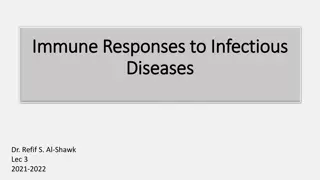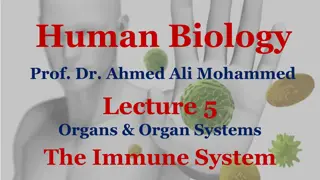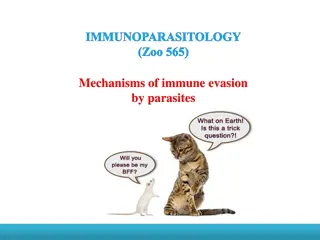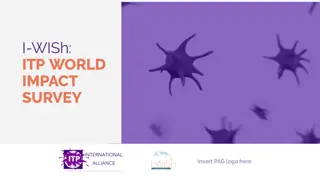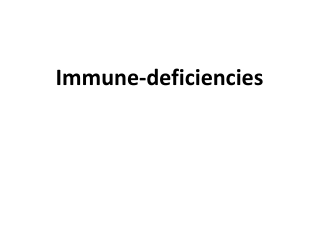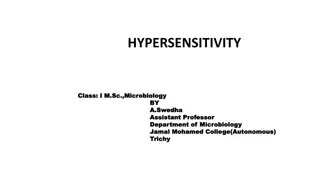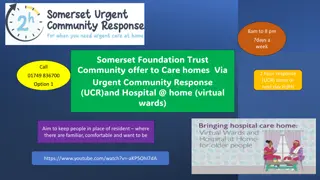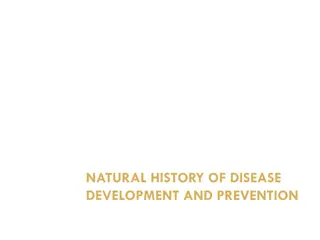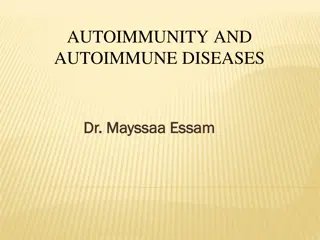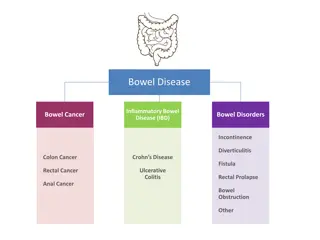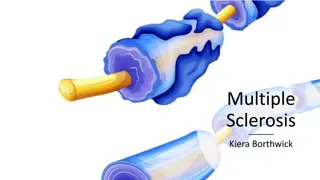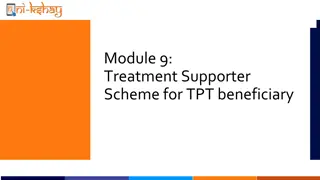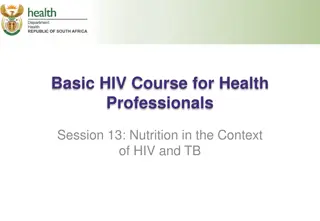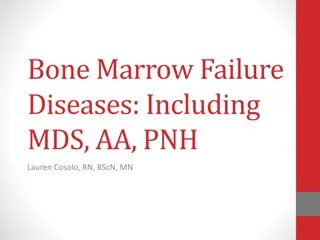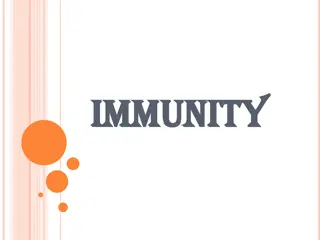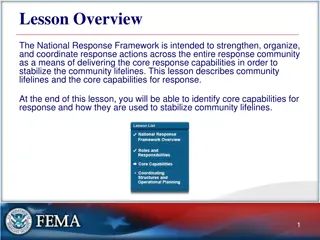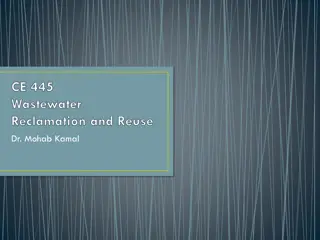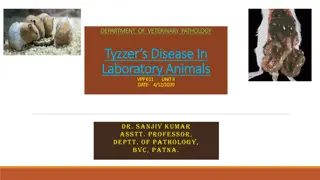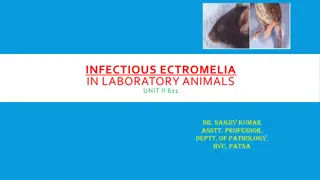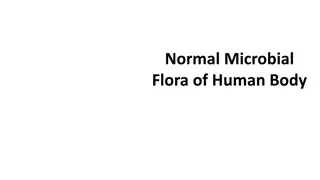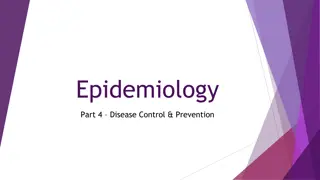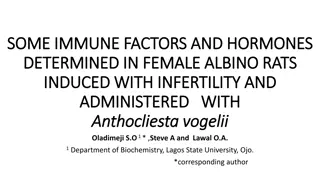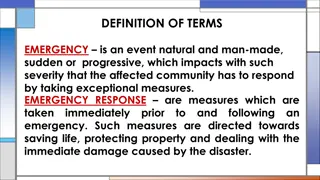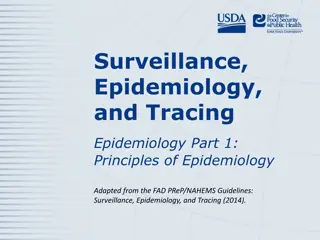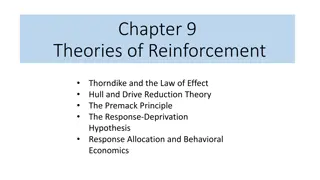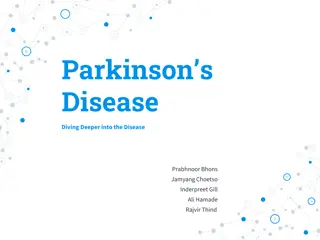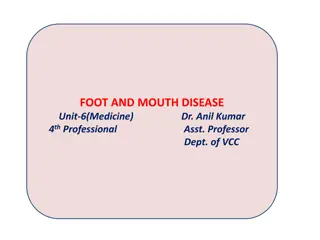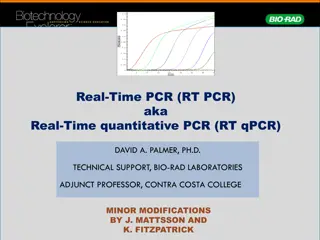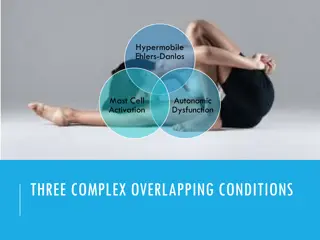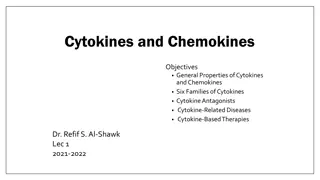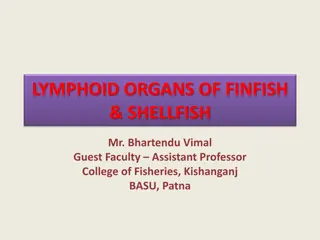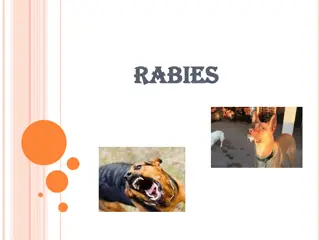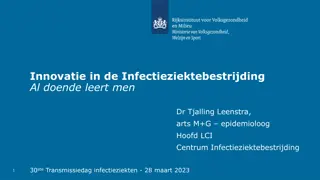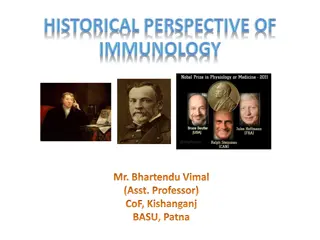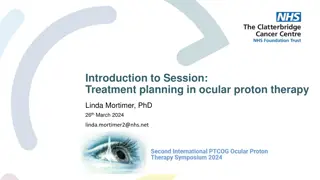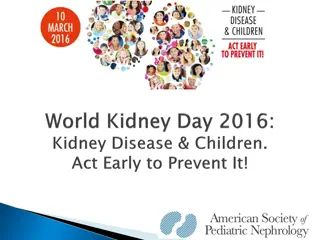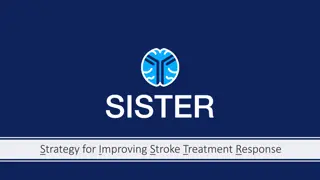Comprehensive Overview of Hematopoiesis and Immune Response in Human Disease and Treatment
This 1-week course delves into the pathophysiology, diagnosis, and treatment of diseases affecting the Hematopoietic System. Topics covered include benign and malignant hematologic disorders, pediatric and adult presentations, blood component therapy, transfusion medicine, and more. Faculty units from the Departments of Medicine, Pediatrics, and Pathology are involved. Reference materials include renowned textbooks like Harrison's Principles of Internal Medicine and clinical practice guidelines. Module coordinators include Dr. Teresita E. Dumagay and fellows. The course will run from Oct. 24 to Oct. 28, 2022, with a hybrid mode of delivery.
Download Presentation

Please find below an Image/Link to download the presentation.
The content on the website is provided AS IS for your information and personal use only. It may not be sold, licensed, or shared on other websites without obtaining consent from the author. Download presentation by click this link. If you encounter any issues during the download, it is possible that the publisher has removed the file from their server.
E N D
Presentation Transcript
OS 216 Human Disease and Treatment 6 Hematopoiesis and the Immune Response Hematology Module
Course Description Course Description This is a 1-week course that covers the pathophysiology, symptomatology, diagnosis, prevention and principles of treatment of diseases of the Hematopoietic System.
Module Learning Outcomes Module Learning Outcomes 1. Define different benign and malignant hematologic disorders and identify their causes and risk factors. 2. Differentiate pediatric and adult hematologic disorders in terms of epidemiology and clinical presentations. 3. Correlate the pathophysiology and manifestations of different benign and malignant hematologic disorders. 4. Discuss appropriate diagnostic work-up and management principles for benign and malignant hematologic disorders. 5. Discuss the psychosocio-economic impact of hematologic disorders on the patients and their families. 6. Discuss the principles of blood donation and blood component therapy. 7. Define the indications for blood component and whole blood transfusion. 8. Discuss transfusion related complications and their management. 9. Identify ethical issues on blood transfusion.
Major Topics Major Topics Benign Hematology a. Anemia b. Bleeding Disorders c. Hypercoagulable States d. Bone Marrow Failure Malignant Hematology Transfusion Medicine
Involved Faculty Units Involved Faculty Units Department of Medicine (Division of Hematology) Department of Pediatrics (Section of Hematology and Oncology) Department of Pathology and Laboratory Medicine
Reference Materials Reference Materials Longo et al. eds. Harrison s Principles of Internal Medicine, 20th ed. Kliegman et al. eds. Nelson Textbook Of Pediatrics, 21st ed. Kumar et al. eds. Robbins and Cotran Pathologic Basis of Disease. 9th ed. Clinical Practice Guidelines (PGH Blood bank, AABB, WHO, ELN, NCCN, ASCO, EHA etc.)
Module Coordinators Module Coordinators Consultant: Dr Teresita E Dumagay Fellows: Dr Rhashell Cogay Dr Torres
Module Run for AY 2022 Module Run for AY 2022- -2023 2023 Date: Oct 24 to Oct 28, 2022 Mode of Delivery hybrid OS 216 Human Disease and Treatment (HDT6) Hematopoiesis AY 2022-2023 https://vle.upm.edu.ph/course/view.php?id=2087 Communications: tedumagay@up.edu.ph
TIME Oct 24 Monday Oct 25 Tuesday Oct 26 Wednesday Pediatric Hematologic Malignancies Oct 27 Thursday Small Group Discussion/Simul ated Patient Activity/Self Study Oct 28 Friday 8:00-9:00 AM Orientation Approach to Anemia in Adults Written Examination in Hematology 9:00-10:00 AM Introduction to Hematology Approach to Anemia in Pediatrics 10:00-11:00 AM Common laboratory tests used in hematology Simulated Patient Activity/Group Work/Self Study Bleeding Disorders in Adults Bleeding Disorders in Pediatrics Adult Hematologic Malignancies 11:00AM- 12:00NN 12:00-1:00PM L U N C H B R E A K 1:00-3:00PM Blood Bank Plenary Hypercoagulable States Approach to Hematologic Complaints Small Group Discussion Simulated Patient Activity/Self Study Simulated Patient Activity/ Small Group Discussion 3:00-5:00PM Pathology/Morphology Plenary Bone Marrow Failure States Simulated Patient Activity/Group Work/Self Study
Lectures Lectures As much as possible stick to schedule provided and/or follow the flow
Small Group Case Discussion Small Group Case Discussion patients will be assigned per group synchronous case discussion with consultant (face to face or zoom) assign a moderator and a scribe for the group
Case Discussion House Rules Case Discussion House Rules 1. Be on time 2. Turn on both your audio and video (if video is not available kindly inform your coordinator beforehand so that we can also inform your faculty of the reason why) 3. Be dressed appropriately (uniform not required but make sure that attire is appropriate for academic forum) 4. Observe proper classroom etiquette 5. Have one speaker at a time
Written Case Report Written Case Report One report per group (18 groups in total) Case is based on SGD Case
Written Case Report Written Case Report
Written Case Report Written Case Report
Simulated Patient Simulated Patient Process: 1. Access Simulated Patient link thru UVLE 2. You will be presented a case scenario. 3. After reading the initial case scenario you will be asked a question and presented with a finite set of options. 4. Depending on your chosen answer you will be directed to a pre-specified set of additional case details. 5. This will keep on repeating until you get to the patient outcome. Evaluation: Scoring will be set on the ending and points collected through the choices made along the case. A student may have 3 tries for the simulation. Highest score will be recorded for summative evaluation.
End of Module Written Exam End of Module Written Exam Schedule for Oct 28 100 multiple choice questions Exam will be open in VLE from 8AM to 12NN on Oct 28 Each student is allowed 2 hours
Evaluation Evaluation
Evaluation for OS 216 50% Immuno + 50% Hema = Pre Final Grade If you will take the finals: 80% Pre Final Grade + 20% Final Exam Course Grade: 95% Final Grade + 5% Comprehensive Exam
OS 216 Human Disease and Treatment 6 Hematopoiesis and the Immune Response Hematology Module


